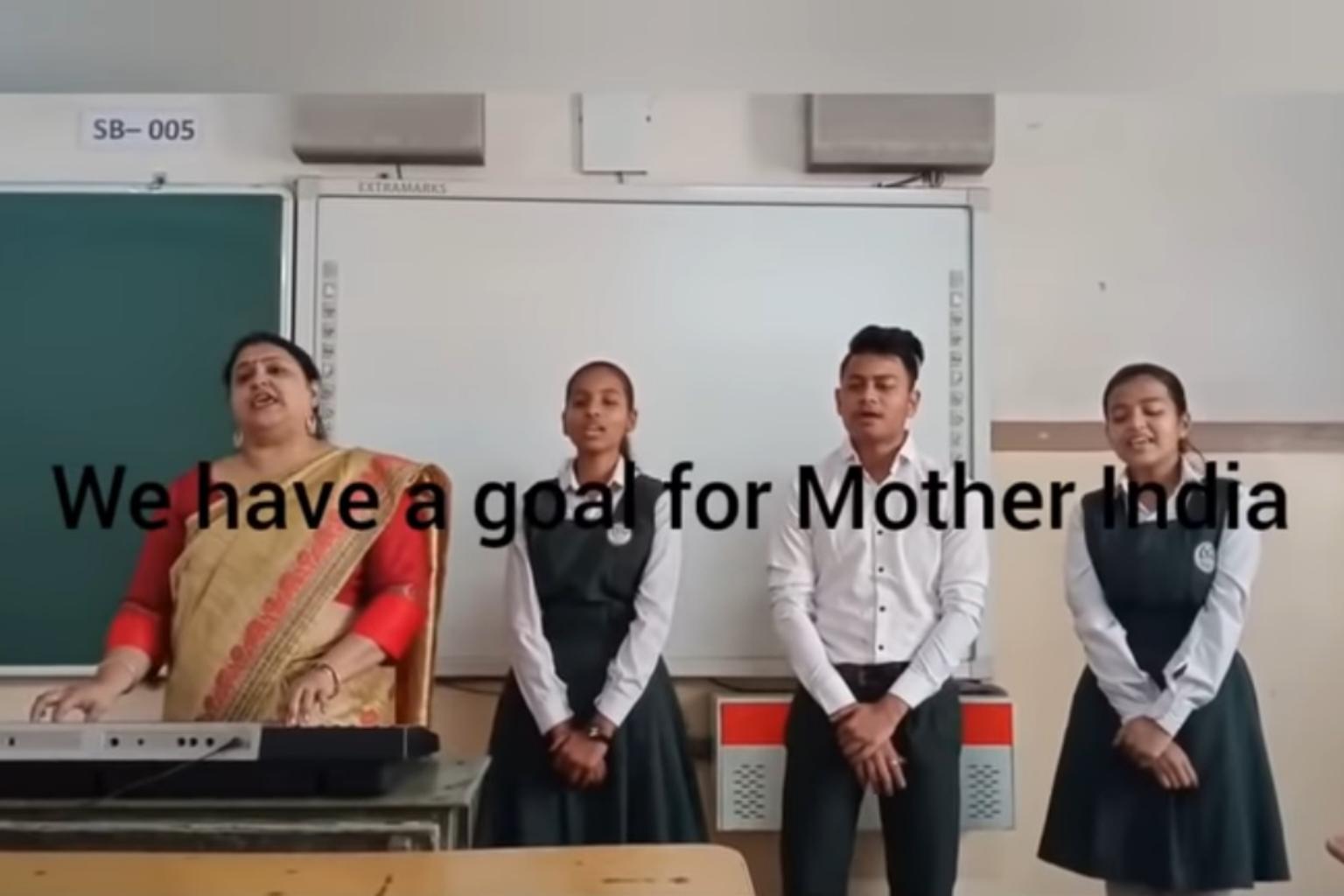MCCY was prepared to take legal action over Count On Me, Singapore plagiarism by Indian composer: Edwin Tong
Sign up now: Get ST's newsletters delivered to your inbox

The MCCY had received feedback that a song We Can Achieve had been featured in several videos, some of which featured schoolchildren apparently from India singing the song.
PHOTO: SCREENGRAB FROM YOUTUBE
Follow topic:
SINGAPORE - The Ministry of Culture, Community and Youth (MCCY) was prepared to take legal action against an Indian composer who plagiarised the song Count On Me, Singapore if necessary.
At the same time, the ministry undertook extensive fact-checking in Singapore and India to refute the claims of the composer, Mr Joseph Mendoza, said Minister for Culture, Community and Youth Edwin Tong in Parliament on Monday (April 5).
"We obtained confirmation of contemporaneous and documentary evidence of the writing of the song Count On Me, Singapore. Mr Jeremy Monteiro, a respected musician and Cultural Medallion recipient, was witness to the events at the time," Mr Tong said.
"Members might have read his account in the news of how he worked alongside Mr Hugh Harrison when Mr Harrison composed the song in 1986."
Mr Harrison, a Canadian, was the original composer of Count On Me, Singapore.
Mr Tong set out how the Government had handled the incident in response to questions from Progress Singapore Party Non-Constituency MP Leong Mun Wai and Mr Gerald Giam (Aljunied GRC) of the Workers' Party.
He said MCCY's principal consideration when addressing questions of use of copyright in Singapore's national songs and symbols is to ensure the protection of the country's ownership and interest in these songs and symbols, as well as to promote the dignified and respectful use of them.
The ministry first received feedback that a song titled We Can Achieve had been featured in several videos, some of which featured schoolchildren apparently from India singing the song. The song was almost identical to Count On Me, Singapore, except for some minor differences such as replacing the word "Singapore" with "India", Mr Tong noted.
He said the students in the videos appeared to be expressing their love for their country and the song was not disrespectfully treated.
Subsequently, the publisher of We Can Achieve acknowledged that the song seemed to have been substantially copied from Count On Me, Singapore and apologised. The publisher also removed the song from its platforms.
"We did not believe there was any ill will or malice intended, and hence accepted their apology," Mr Tong said.
However, shortly after, Mr Mendoza alleged that he had written We Can Achieve in 1983. Count On Me, Singapore was composed and arranged in 1986.
"This was an untenable assertion, given that this song was practically identical to Count On Me, Singapore. If his claim was right, it would be a direct affront to our ownership and interest in the national song Count on Me, Singapore," Mr Tong said.
"We thus pressed Mr Mendoza to substantiate his claims. If he could not, then he ought to withdraw them."
Mr Mendoza then changed his position, withdrew his claims and admitted he had no evidence to support them, in response to the ministry's requests for proof.
"Mr Mendoza's admissions leave no doubt that Count On Me, Singapore was written by Mr Hugh Harrison and the rights and ownership in the national song remain with us," said Mr Tong.
"Mr Mendoza also wrote to us to confirm that the song We Can Achieve has been taken down from known networks and platforms. We have thus decided to let the matter rest."

Mr Joseph Mendoza (left) had claimed that he wrote We Can Achieve in 1983, while Count On Me, Singapore was composed by Canadian Hugh Harrison in 1986.
PHOTOS: JOEY MENDOZA/FACEBOOK, COURTESY OF HUGH HARRISON
The minister noted that current legal protections for Singapore's national songs and symbols include the Singapore Arms and Flag and National Anthem legislation, as well as the Copyright Act.
But he also stressed that asserting Singapore's rights need not mean taking legal action.
"In this case, it was quicker and a lot more effective for Mr Mendoza to be persuaded that his own position was untenable, for his claims to be withdrawn by himself," he said.
"I believe that was a far more efficient outcome that was achieved in a matter of several days, as opposed to being caught up in protracted legal action, which could potentially take a fairly long period of time."

